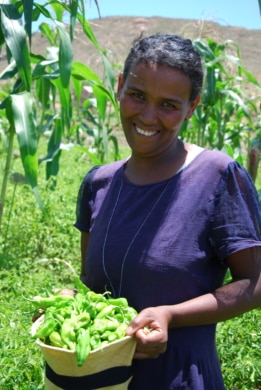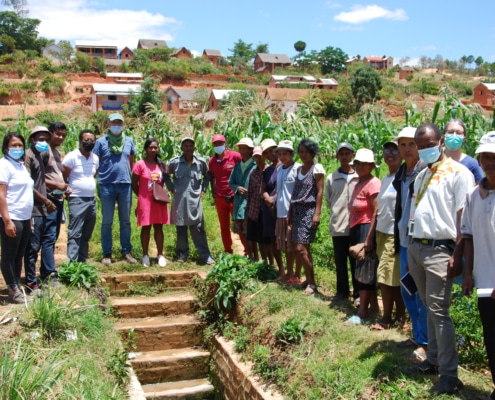Faced with the harmful consequences of the excessive use of chemical phytosanitary products, Malagasy farmers in the Analamanga and Itasy regions have opted for agroecological practices. To better valorize their products, they have undertaken a Participatory Guarantee System for Agroecology.
What is the PGS?
According to the International Federation of Organic Agriculture Movements, participatory guarantee systems (PGS) are “locally oriented quality assurance systems. They certify farmers on the basis of active stakeholder participation and are built on a foundation of trust, networks and knowledge exchange. They therefore provide assurance to consumers seeking organic products via “a process of direct participation of farmers, consumers and other local stakeholders in the GSP verification process.”
Since 2015, Fert and the Fifata Group have been supporting the structuring of agricultural services at the grassroots level for farmers in the Analamanga and Itasy regions. In a peri-urban context – on the outskirts of Antananarivo – where vegetable production is mainly oriented towards the capital’s markets, the use of fertilizers and chemical plant protection products is widespread and is becoming problematic. Soil degradation and product quality, an upsurge in diseases, high production costs, and concerns for the health of farmers and consumers are all elements that have motivated the partner POs and farmers to disseminate and adopt agroecological practices.
To better value products by targeting markets that demand quality products, the farmer organizations (FOs) have committed themselves as of 2018 to a quality approach aimed at improving their production practices and in-fine the quality of vegetables delivered to the market. This approach, called GSP Agroecology (for Participatory Guarantee System), has enabled them to define specifications and adopt a learning and control approach, which should allow access to new, more remunerative markets by guaranteeing environmentally friendly production methods.
Currently covering 9 rural communities and involving about 30 market gardeners, this approach should be extended to a larger number of members by 2022.
The visit in December 2021 of an expert from IFOAM (the international federation of organic agriculture movements) Cornelia Kirshner, mobilized in Madagascar by the SYMABIO organization, confirmed that the approach to which the farmers are committed corresponds to the principles observed in the PGSs of many other countries. The farmers of Analamanga have now defined their specifications and their control methods. The next steps will be built with the actors involved in the control and purchase of products (communes, buyers, etc.) to test this approach on the market.
As Cornelia Kirshner mentions, the establishment of a PGS takes time and it is best to ensure a solid base of support to allow for trust and dialogue between members. This foundation is now in place and will allow us to move forward more effectively in this marketing approach for agro-ecological products.
Credit photo : SYMABIO




